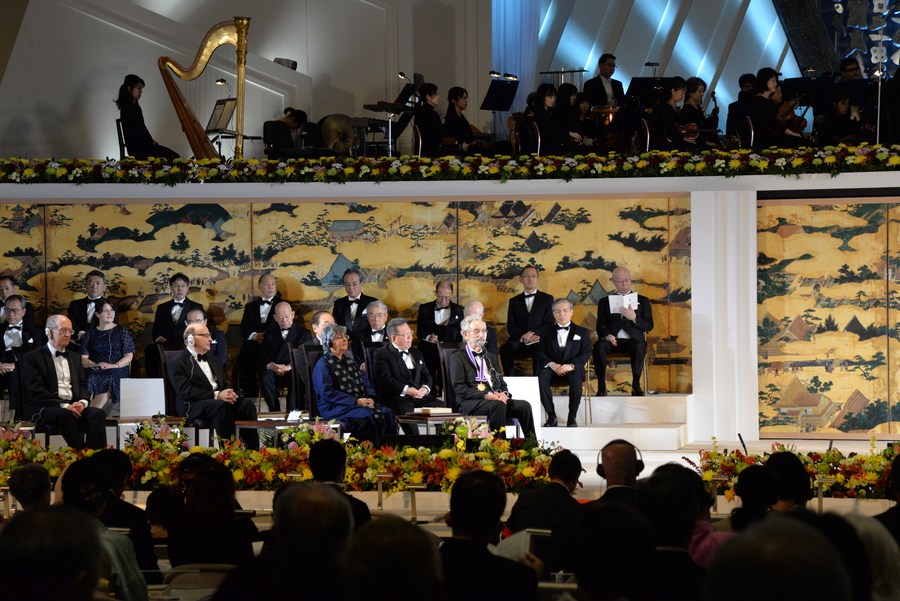Three scholars were awarded the 38th annual Kyoto Prize at a ceremony in Japan’s Kyoto on Friday in recognition of their great achievements in the fields of advanced technology, basic sciences and arts and philosophy, respectively.
As Japan’s highest private award for global achievement, the Kyoto Prize has been presented annually since 1985 by Inamori Foundation, to encourage those who have made outstanding contributions to the betterment of human life through great achievements in the three categories – Advanced Technology, Basic Sciences, and Arts and Philosophy. Several laureates of the Kyoto Prize have later been awarded the Nobel Prize.
Japanese reproductive biologist Ryuzo Yanagimachi, who passed away at the age of 95 on Sept. 27, won the Kyoto Prize in Advanced Technology for his “significant contributions to the development of livestock farming and human assisted reproductive technology (ART) through artificial insemination,” according to a citation by the Inamori Foundation.
The Kyoto Prize in Basic Sciences was given to U.S. mathematician and physicist Elliott H. Lieb, for his “pioneering mathematical research in physics, chemistry, and quantum information science based on many-body physics.”
Indian artist Nalini Malani was awarded the Kyoto Prize in Arts and Philosophy, for creating phantasmagorical spaces with approachable art forms using various media and producing works to “bring the voice of the voiceless to more people.”
During the ceremony in the Kyoto International Conference Center, the laureates were presented a diploma and a Kyoto Prize medal by Shigetada Nakanishi, chairman of the Inamori Foundation. Each laureate will also receive prize money of 100 million yen (about 662,664 U.S. dollars).
Due to the spread of the COVID-19 pandemic, Friday’s event marked the first time in four years that the Kyoto Prize Presentation ceremony has been held.







